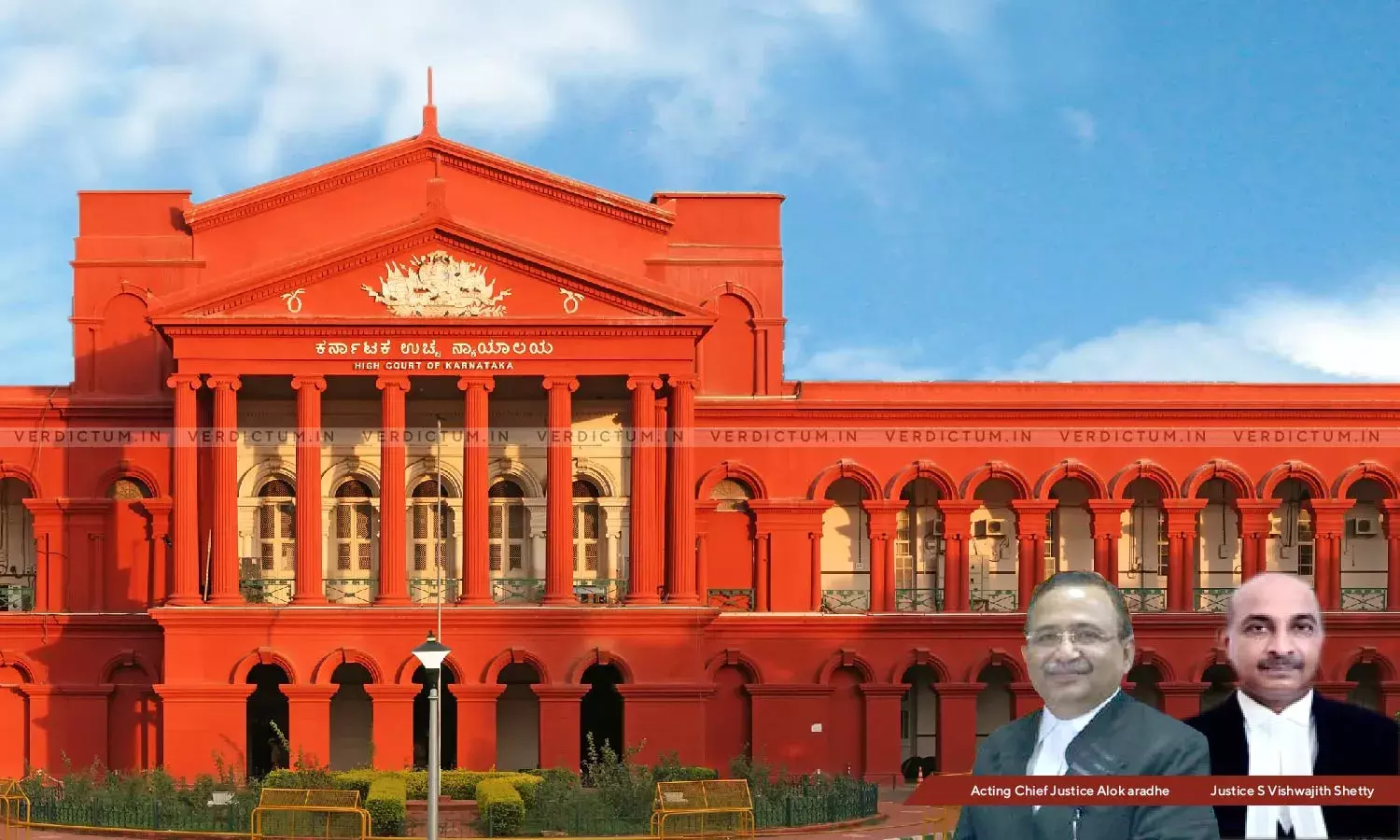Karnataka HC Refuses To Direct State Government To Frame Scheme For Administration Of Maths In The State

The Karnataka High Court has refused to direct the State Government to exercise its power under Article 162 of the Constitution of India, to frame a scheme for administration of Maths in the state.
The Bench of Acting Chief Justice Alok Aradhe and Justice S. Vishwajith Shetty was dealing with a plea seeking direction to the State to exercise its executive power to regulate the Ramachandrapura Math and all other Maths in the state pending the passing or enactment of a regulatory statute by the State Legislature.
Senior Advocate S.S. Naganand appeared for the Petitioners whereas Senior Advocate Udaya Holla represented the Ramachandrapura Math. Additional Advocate General R. Subramanya and AGA S.S. Mahendra represented the State and ASG H. Shanthibhushan represented the Union of India. Advocate E.I. Sanmathi appeared for the Chief Commissioner of Income Tax.
The petitioners claimed to be devotees of Ramachandrapura Math. The Math was established in 8th Century and was known as Raghottama Math and is involved in propagation of tenets of Sanathan Dharma and Indian Philosophy.
The Math is headed by a Mathadhipathi who is the head of spiritual fraternity and has to perform religious of a religious teacher. The affairs of Math or Religious institutions were being regulated by Mysore Religious and Charitable Institutions Act, 1927. The said Act was repealed by Karnataka Hindu Religious Institutions and Charitable Endowments Act, 1997 (1997 Act).
The 1997 Act does not apply to a Math or Temple attached to or managed by Math.
Senior Counsel for the petitioners clarified that the petitioners were not seeking any mandamus to the Legislature to enact a law. It was further submitted that there is a vacuum with regard to an effective Legislation in relation to curbing and taking remedial action in respect of Mathers pertaining to Maths and Mathadipathis.
It was contended that executive powers under Article 162 of the Constitution of India can be exercised to frame a scheme in respect of Maths. It was also urged that there is a need to evolve a mechanism to deal with the issue of administration of Maths in the State of Karnataka.
On the other hand, Senior Counsel for Respondents-Mathadhipathi submitted that Section 1(4) of the Act specifically excludes Maths from the purview of the Act and therefore, the petitioners cannot seek a direction to the State of Karnataka to exercise its executive power to regulate the Maths in question.
It was also urged that there is no element of public interest involved in the petition and the petition was filed out of vengeance against Respondents- Ramachandrapura Math and Mathadipathi of the Trust
The Additional Advocate General submitted that no representation has been submitted to the State Government and the State Legislature has consciously omitted the Maths from the purview of the Act.
The Court observed that the legislative intention to exclude the Maths is manifest from the statement of objects and reasons of the Amendment Act.
The Court further observed that Respondent No.1 has been appointed as mathadipathi of Respondent No.2 trust in April 1999. Thereafter, since the year 2014, there has been successive attempts to remove Respondent No.1 from the office of mathadipathi /mahant.
The Court further noted that one T.T. Hegde had filed a petition under Section 92 of the Code of Civil Procedure which was dismissed. The Court noted that another petition was filed by two of the devotees under Section 92 of the Code of Civil Procedure which came to be dismissed.
Therefore, the Court observed thus "In the peculiar fact situation of the case, this Court is not inclined to exercise the extraordinary jurisdiction under Article 226 of the Constitution of India and to issue a writ of mandamus to direct the State Government to exercise its power under Article 162 of the Constitution of India, to frame a scheme for administration of the Maths. The Legislature has expressly excluded the Maths and Temples attached to the Maths, as they are headed and managed by mathadipathis. In any case, the petitioners have an alternative efficacious remedy under Section 92 of the Code of Civil Procedure."
The Court refused to pass orders on the application seeking recall of the order by which the petitioner was permitted to submit a representation to Chief Secretary, Government of Karnataka.
"In view of preceding analysis, we do not find any merit in the writ petition. However, liberty is reserved to the petitioners to take recourse to the remedy provided under Section 92 of the Code.", the Court observed while disposing of the petition.
Cause Title- Edurkala Ishwara Bhat & Ors. v. Raghaveshwara Bharathi Swamiji & Ors.
Click here to read/download the Order

